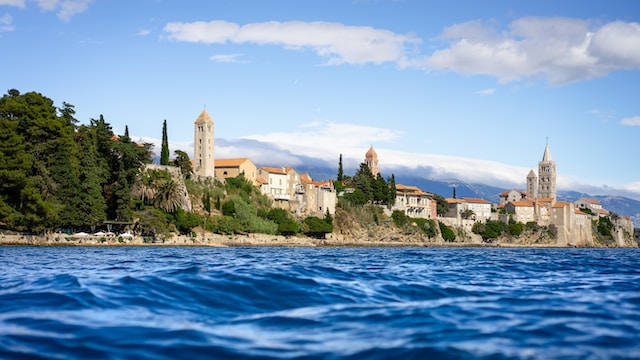Immigration to Europe through study is very popular all over the world. This method of immigration will allow you to get a quality education and officially work in Europe 20 hours a week.
For most potential immigrants, countries such as Greece, Austria, Italy will be the best choice. You can enter the universities of these countries without language certificates, you can learn the language after admission, and with the registration of student visas, things are easier.
These countries invite foreign students from all over the world to study. There is no need for special documents, the main one is a certificate of secondary education if you want to enroll in undergraduate programs.
Greece
Study at Greek universities is free, and applicants are admitted once a year based on a certificate. The first year of study is devoted to the study of Greek. The admission process is quite complicated, takes place in Athens, and requires the personal presence of the applicant. Universities in Greece accept applications from applicants within a week, and the exact dates are announced in about 3-5 days, so from about July 1, you need to check the website of the Ministry of Education every day. Students receive free textbooks, meals and can apply for free accommodation and scholarships.
Austria
Admission to universities is similar to admission to universities in Greece. The education system is the same, the admission of applicants goes without a document on knowledge of the language. In Austria, the study of German, as a rule, is allocated as many as four semesters, at the end of which a language exam is carried out. However, many students manage to learn it in less time and pass the exam faster. Recently, students of Austrian universities can work even during the preparatory language year.
Some applicants go to Austria to get a bachelor’s degree there, and then go to Germany and enroll in master’s programs.
Germany & France
In these countries, education is free. However, you cannot study without knowledge of German or French: you need to learn the language before entering the university and get a language certificate. Many enter universities in France and Germany after working on the AuPair program.
Watch also:
- ZRFA Experience Exchange Program: Agricultural Internship in Europe
- PhD in Germany for Indians: Free Education Guide
Italy & Spain
The cost of studying in these countries is from 700 euros per year, depending on the city and the program, and the process of enrolling an applicant at the university is similar to that described above. However, in the case of Italy, parental income documents will also be required, and a scholarship can be obtained. A slight difficulty is created by the fact that a foreign student must either know the language in advance at least at a basic level or take preliminary language courses, which are paid separately. There is no official university preparatory year. Admission is possible without a language certificate.
Czech Republic
You can study for free, there are excellent educational opportunities. Probably the only drawback is that admission to universities in the country is based on exams, and they are in Czech. In most cases, you have to study at least half a year of language courses. After studying in the Czech Republic and receiving a bachelor’s degree, you can enroll in a master’s program in Germany.
Lithuania, Latvia & Poland
These countries are not so popular with foreign applicants, but they also provide many opportunities for education and emigration to Europe. In the Baltics, education is relatively inexpensive, and in Poland, it is completely free if it is in Polish. Since the universities of these countries adhere to the international grading system (points-credits), which allows students to transfer to universities in other countries, most often the Baltic States, Poland, as well as Slovakia, Hungary and other states of Eastern Europe often act as a “transit point”.
On average, a year of living and studying in Poland will cost 2-2.5 thousand euros, in Lithuania and Latvia – 1.5 thousand euros.
Watch also:
Slovenia
This country with a rapidly developing tourism sector can be a good solution for studying immigration. The language is not difficult and is similar to other Slavic languages. Slovenian education is inexpensive – the cost of an annual education is about 2,000 euros.
Educational migration: How to stay in the country
European countries allow foreign students to work almost immediately after moving – up to 20 hours a week during the study period. Of course, not everyone can find a job close to their future specialty, prestigious, and highly paid. Specially, without an excellent knowledge of the local language. Some student can find the work remotely, another babysitting. Others find a vacancy in a travel agency for the summer.
While the student is studying, there is no need to worry: a temporary residence permit is guaranteed. And after receiving the diploma, it will have to be changed to stay in the country. There are several options.
Get a job contract
Of course, the most logical thing is to find an employer during your studies, who will offer a labor contract. Some countries provide a graduate with the opportunity to legally stay in the country for a year from the date of graduation to be able to find a job in a person’s specialty.
Become a private entrepreneur
Yes, foreign graduates after graduating from a higher education institution receive this right. After registering an individual entrepreneur, a person is immediately extended a residence permit. But an individual entrepreneur must have at least some income. You have to pay taxes.
Enroll in graduate school (doctoral studies)
In many countries, a graduate student is considered not a student, but an employee of the university, that has a salary. After receiving a Ph.D., the chances of finding a good job and staying in the country increase many times over.
Legalize relations with a citizen of the country
Now they have legalized the contractual relationship of cohabitation, so it is not necessary to officially marry. You can conclude a contract and get a residence permit. In fact, this document is not valid in Austria and Hungary.






